

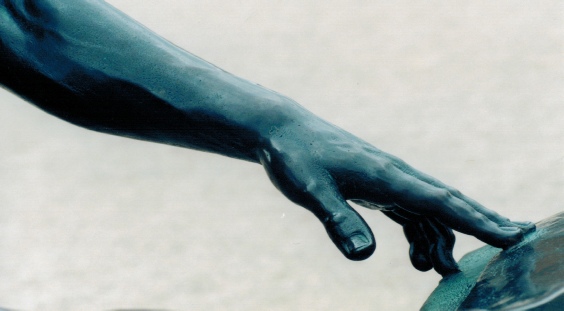
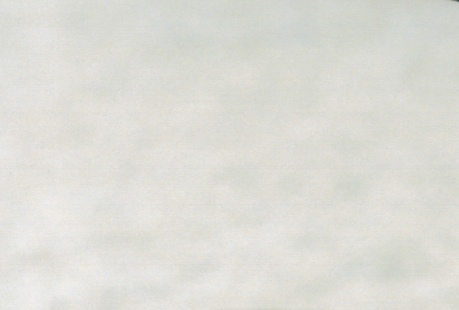




Further benefits of the procedure are that it typically can be done under simple local anesthetic and is a fairly brief procedure. There are no stitches, and there are minimal wounds. Recovery to regular activity can occur within days.
Significant improvement of the contracture is quite typical, but much like any Dupuytren’s contracture treatment, with NA, a residual smaller contracture may persist after NA.
Those who have had open surgery before are amazed at the difference in recovery! With the development of this technique, there now is little excuse to delay treatment.
To find out if you are a candidate for Needle Aponeurotomy at The Hand Center at Cascade Orthopaedics, please give us a call at (253) 833-7750, and we would be happy to set up a consultation.
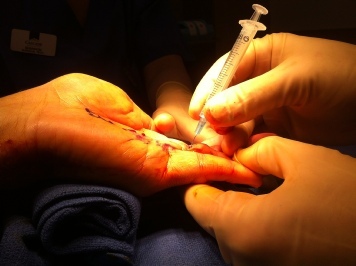
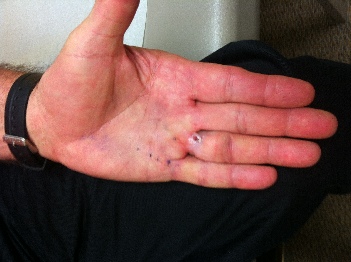
Preoperative Appearance
The Procedure
Results at One Week
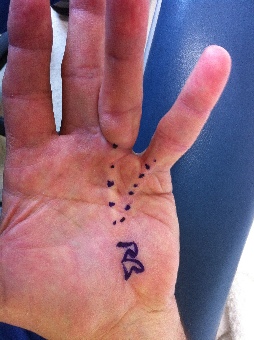
Needle Aponeurotomy
One of the most remarkable recent developments in hand surgery is the technique of
Needle Aponeruotomy (NA). Developed in Europe and recently brought to the United
States by Dr. Charles Eaton, this treatment has been growing in popularity among
hand specialists.
Traditional open surgery can be quite effective, but it is very
invasive and involve a long recovery time. This has inspired the development of
innovative techniques. In open surgery, the contracture cords are literally removed
from the hand, thus un-tethering the fingers and letting them extend. In the NA
technique, nothing is removed from the hand. The cords are simply cut into pieces
and allowed to tear apart and separate. This un-tethers the finger and lets it
extend.
Instead of being performed through open incisions, NA is done only through needle puncture wounds. The tip of a regular hypodermic needle is quite sharp, and can actually be used as a tiny knife. Using careful motions, the cord can be cut through several small punctures and ultimately disrupted. The finger is then released into greater extension.